Understanding what foods are safe for your dog to consume is a critical aspect of responsible pet ownership. Many foods that are safe and healthy for humans can be harmful or even fatal to dogs. The potential harm these foods can cause ranges from mild discomfort to severe health conditions, including kidney failure, liver damage, and neurological issues. Misconceptions about what dogs can eat are common and can lead to unintentional harm. By gaining knowledge of these unsafe foods, pet owners can create a safer environment and healthier diet for their beloved canine companions.
Contents
Chocolate
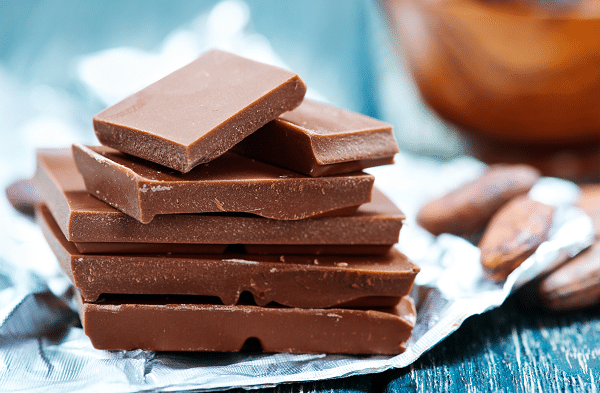
Chocolate, a treat enjoyed by many people worldwide, is a well-known hazard to dogs due to its theobromine content. Dogs metabolize theobromine much more slowly than humans do, leading to a build-up of this substance in their system. This build-up can cause a variety of health issues, including vomiting, diarrhea, irregular heartbeat, and, in severe cases, seizures or even death.
In the event a dog ingests chocolate, it is vital to contact a veterinarian immediately. The severity of the situation can depend on the amount and type of chocolate consumed – dark chocolate and unsweetened baking chocolate contain higher levels of theobromine and are thus more dangerous. Therefore, keeping chocolate securely stored away is crucial to a dog’s safety.
Alcohol

Alcohol’s effect on dogs is similar to its impact on humans but with far graver consequences due to dogs’ smaller size and different metabolism. Consumption of alcohol can cause significant damage to a dog’s liver and brain. Even small amounts of alcohol can lead to intoxication, resulting in vomiting, loss of coordination, or worse, coma and death.
If a dog consumes alcohol, immediate veterinary care is necessary. The severity of alcohol’s impact can vary based on the dog’s size, overall health, and the amount and type of alcohol consumed. A rule of thumb is to keep all alcoholic beverages out of reach and to educate guests and other household members about this danger.
Onions And Garlic
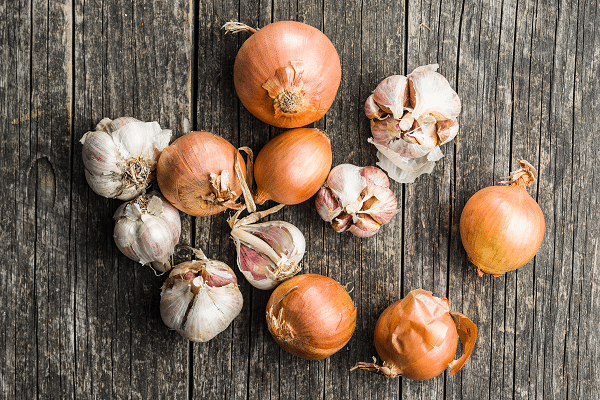
Onions and garlic, although commonly used in human cuisine, are toxic to dogs. These foods, both raw and cooked, can cause damage to a dog’s red blood cells, leading to a condition known as hemolytic anemia. This can result in decreased oxygen delivery to tissues, causing weakness, lethargy, and breathlessness. It’s important to note that this effect can be cumulative, meaning regular, small amounts can also be harmful over time.
Signs of toxicity from onion and garlic consumption may not be immediately apparent. Symptoms can show up a few days later, making it even more essential to prevent dogs from eating these foods. If a dog consumes onions or garlic, contacting a vet as soon as possible is the best course of action. Also, ensuring these ingredients are securely stored and not included in any homemade dog treats is a proactive step toward your dog’s health.
Caffeine

Caffeine, while an energy booster for humans, is extremely dangerous for dogs. A dog’s body is not equipped to handle the stimulating effects of caffeine, which can affect their central nervous and cardiovascular systems, leading to symptoms such as restlessness, rapid breathing, heart palpitations, and muscle tremors. In severe cases, caffeine consumption can even lead to death in dogs.
It’s not just coffee and tea that pose a threat; caffeine can be found in various other products like energy drinks, certain medicines, and chocolate. Accidental ingestion requires immediate veterinary intervention, so keeping these items out of a dog’s reach is crucial. It’s also important to be aware of guests leaving their drinks within reach or dropping caffeine-containing medications.
Xylitol (Artificial Sweetener)
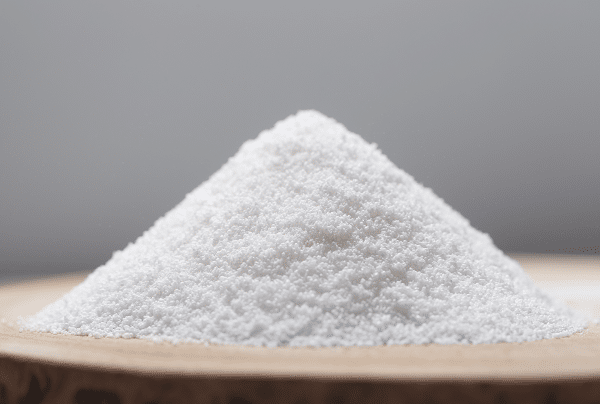
Xylitol, a sugar substitute commonly found in human foods such as sugar-free gum, candy, and baked goods, can be fatal to dogs. Ingesting even small amounts can cause a rapid and dangerous drop in a dog’s blood sugar (hypoglycemia), resulting in symptoms like loss of coordination, vomiting, lethargy, and seizures.
Not only does xylitol pose an immediate danger, but it can also lead to liver failure in dogs within a few days of ingestion. This makes it absolutely vital to check all product labels for xylitol before offering any portion to a dog. If a dog consumes anything containing xylitol, it’s an emergency situation requiring immediate veterinary attention. The best prevention is to keep all xylitol-containing products securely stored and out of your dog’s reach.
Grapes And Raisins
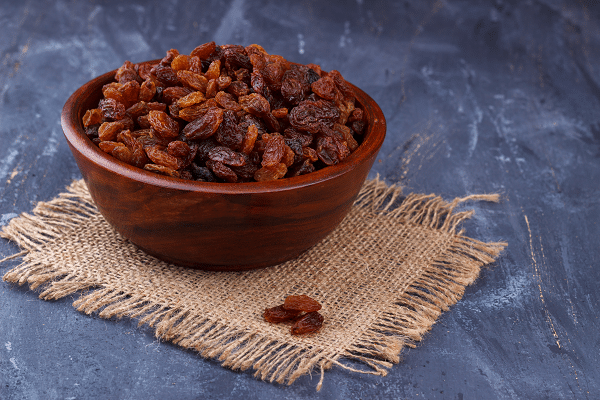
While the specific toxin in grapes and raisins that makes them harmful to dogs remains unknown, the potential danger they pose is clear. Consuming these fruits can lead to sudden kidney failure in dogs. Symptoms of this condition include lethargy, loss of appetite, vomiting, and abdominal pain. It is noteworthy that the toxic effect can occur with large or small amounts, and individual sensitivity varies greatly among dogs.
In the event of grape or raisin ingestion, the urgency of seeking veterinary care cannot be overstated. Induced vomiting, if done soon after ingestion, can help, but it’s crucial to follow this with a veterinary examination. As an additional measure of caution, it’s best to avoid giving any food products that may contain grapes or raisins, including certain types of cookies and muffins.
Avocado
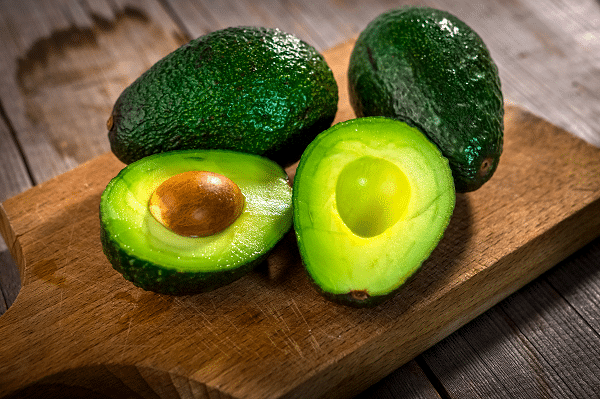
Avocado, a superfood for humans, is not equally beneficial to dogs. This fruit contains a toxin called persin, which can cause gastrointestinal irritation in dogs, leading to vomiting and diarrhea. The highest concentration of persin is in the avocado’s leaves and pit, but the flesh also contains this toxin, though in smaller amounts.
If a dog consumes a significant amount of avocado, or especially if it ingests the pit (which can also cause choking or create an obstruction in the gastrointestinal tract), veterinary attention should be sought. Keeping avocados and dishes containing avocado, like guacamole, out of a dog’s reach is crucial. It’s always a good practice to keep the kitchen and dining area clean and free of food leftovers that could potentially harm your dog.
Conclusion
Being aware of the potential dangers certain foods pose to dogs is an essential part of responsible pet ownership. Foods that are beneficial or benign to humans can often be harmful or fatal to dogs. Avoiding the common pitfalls and misconceptions around feeding “people” foods to dogs can help ensure their health and longevity. It’s always best to err on the side of caution and consult a veterinarian if there is any doubt about a particular food. Likewise, if a dog ingests something potentially harmful, seeking immediate veterinary care can make all the difference. Keeping these key points in mind can help create a safe and nourishing environment for every beloved canine companion.


